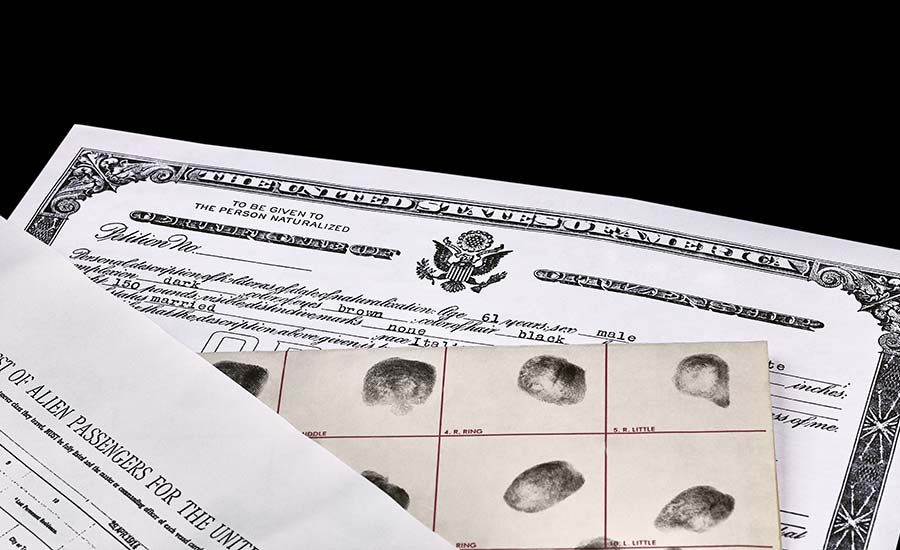

Major Policy Shift in USCIS Naturalization Standards, From Absence of Misconduct to Evidence of Good Deeds
In a significant change to longstanding immigration policy, USCIS has updated its guidance on what constitutes “good moral character” (GMC) for purposes of naturalization. Previously, the threshold standard focused primarily on the absence of disqualifying behavior, meaning that if an applicant had no criminal record, paid their taxes, and fulfilled family obligations like child support, they were considered to have good moral character. Under the newly revised guidance, released via the USCIS Policy Manual on August 21, 2025 (Volume 12, Part F, Chapter 1), the absence of negative behavior is no longer sufficient. Applicants must now present affirmative evidence of positive conduct to be deemed eligible for citizenship.
This adjustment stems from USCIS’s broader discretionary authority and reflects an evolving interpretation of immigration statutes and moral standards in the naturalization process.
What’s Changed, New Focus on Positive Moral Attributes
The revised guidance now mandates that applicants affirmatively demonstrate good moral character through one or more of the following:
-
Community Involvement: Volunteer service, civic engagement, or consistent participation in community activities
-
Stable Employment History: Demonstrating long-term employment or self-sufficiency in the United States
-
Family Responsibility: Acting as a caregiver or primary provider for family members over an extended period
-
Long-Term Residence in the U.S.: An extended period of lawful presence in the U.S., often spanning 20 to 30 years
-
Full Tax Compliance: Not just filing taxes or being on a payment plan, but complete payment of all federal, state, and local tax obligations
In short, applicants must now show that they are actively contributing to the moral and civic fabric of the country, not simply avoiding wrongdoing.
New Disqualifiers: What Could Hurt Your Case Now
Perhaps most striking in the policy revision is the tightened scrutiny around tax obligations. Previously, entering a payment plan with the IRS or state tax authorities was often sufficient to meet moral character standards. Under the new rules, tax debts must be paid in full before naturalization will be approved. A payment plan alone, without full resolution, may now serve as a negative factor in a GMC evaluation.
Additionally, USCIS adjudicators have greater discretion to weigh any conduct that may suggest moral ambivalence, including failure to show engagement with the community, a spotty work history, or limited evidence of familial responsibilities.
Implications for Applicants: How to Strengthen Your Case
For prospective citizens, this new landscape requires proactive planning. Here are strategic actions that can help satisfy the updated good moral character requirement:
-
Document Community Service – Obtain letters from nonprofits, religious organizations, or neighborhood associations
-
Organize Employment Records – Keep pay stubs, employer letters, or tax filings that show a stable income history
-
Show Family Involvement – Caregiver responsibilities, guardianship roles, or parental duties should be documented
-
Pay Off Tax Debts in Full – Work with a tax attorney or CPA to ensure all tax liabilities are resolved before applying
-
Retain Immigration Counsel – Especially for long-time residents or individuals with past legal issues, a skilled immigration attorney is essential
The Role of an Immigration Attorney, Spar & Bernstein Can Help
At Spar & Bernstein, we understand that these new rules may feel overwhelming, especially for applicants who have lived in the United States for decades without issue. Our experienced immigration attorneys will:
-
Assess your complete immigration and moral character profile
-
Advise on strategies to build positive evidence
-
Resolve tax-related barriers to naturalization
-
Prepare you for interviews and documentation demands
-
Advocate for your eligibility under discretionary standards
With a 60+ year legacy of success, Spar & Bernstein is committed to ensuring every eligible resident has a fair chance at U.S. citizenship, even under today’s more demanding rules.




